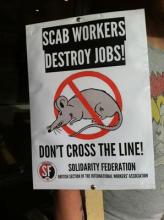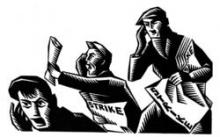In 1997, councils across Britain came to an agreement with unions to undertake ‘Single Status’ job evaluations to end the discrepancies between manual and white collar jobs. Parallel to this, claims made about the historic pay discrepancies between traditionally male and traditionally female jobs were won at various Employment Tribunals. Historically, workers in female dominated jobs (such as those working around childcare) have been paid significantly less than those in jobs usually seen as ‘men’s work’, such as refuse collection.
Since the Equal Pay Act in 1970 these pay discrepancies had been open to legal challenge, but Single Status was supposed to be an across the board solution that would see every job within the councils evaluated and regarded equally based on the content of the job. In theory, this was of course a good thing.





